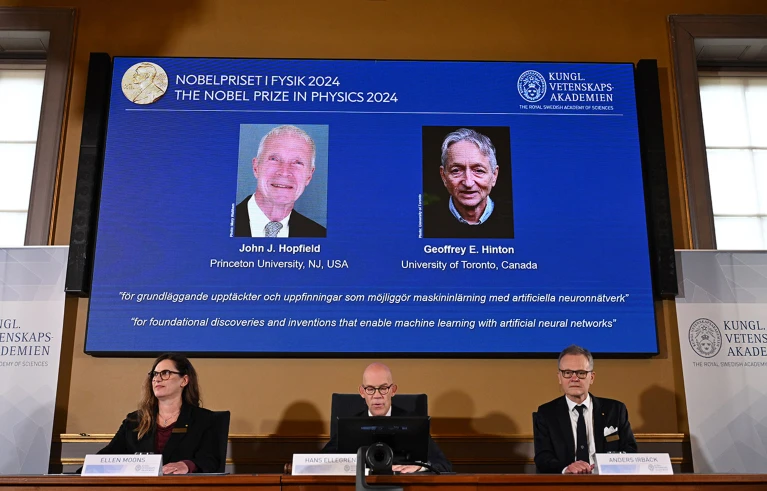On Oct. 8, in Stockholm, John Hopfield, of Princeton University, and Geoffrey Hinton, of the University of Toronto, were awarded the 2024 Nobel Prize in Physics for their groundbreaking contributions to Artificial Intelligence (AI). The Royal Swedish Academy of Sciences recognized Hopefield and Hinton “for foundational discoveries and inventions that enable machine learning with artificial neural networks.”

Photo courtesy of John Hopfield
John Hopfield
“[Hopfield] created an associative memory that can store and reconstruct images and other types of patterns in data. [Hinton] invented a method that can autonomously find properties in data, and so perform tasks such as identifying specific elements in pictures.”
The Nobel Prize in Physics is one of the most prestigious awards in the scientific community, and this year’s winners have truly earned their place among the greats. Their foundational discoveries and inventions have not only advanced the field of AI but also opened up new possibilities for innovation and progress across numerous industries.
The award ceremony will take place on December 10, the anniversary of the death of Alfred Nobel, the founder of the Nobel Prizes. The laureates will receive a medal, a diploma, and a cash award of 11 million Swedish kronor (approximately $1.06 million USD), to be shared equally between them.
Hopfield and Hinton’s research paved the way for significant advancements in AI, enabling machines to learn and recognize patterns in large datasets. Their work has had a profound impact on various fields, from healthcare and autonomous systems, to finance and entertainment, and it continues to shape the future of technology.
Hinton, often referred to as the “Godfather of AI,” has made significant contributions to the field, including the development of methods that allow computers to autonomously find properties in data, such as identifying specific elements in pictures. His work has been crucial in advancing deep learning techniques that power everything from speech recognition systems to self-driving cars.

Johnny Guatto/University of Toronto
Geoffrey E. Hinton
Just last year, Hinton made headlines after stepping down from Google over the use of AI. Although understanding that AI could one day be smarter than humans, Hinton warned that that day was soon approaching; quicker than anyone would realize.
In an interview following the Nobel announcement, Hinton expressed both excitement and caution about the future of AI. “I’m hoping AI will lead to tremendous benefits, especially in healthcare,” he said. “But I also worry about the potential dangers and the need to ensure we can control these powerful systems.”
Hopfield, widely regarded as a pioneer in the field of neural networks, created an associative memory that can store and reconstruct images and other types of patterns in data. This innovation has been fundamental to the development of AI technologies that are now commonplace in our daily lives.
Hopfield and Hinton’s achievements are a testament to the power of scientific inquiry and the potential of AI to change the world for the better. As we celebrate their accomplishments, we are reminded of the importance of continued research and collaboration in advancing technology for the benefit of all humanity.

